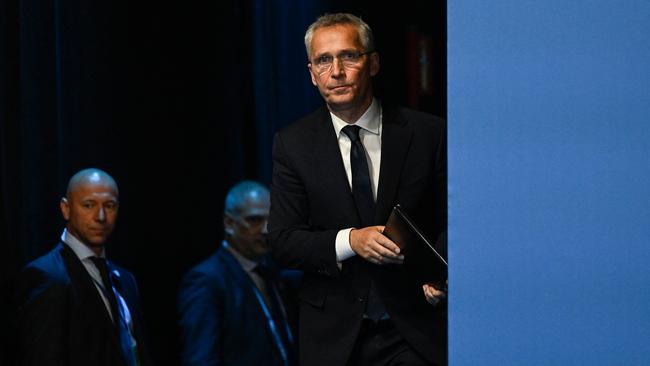
NATO has warned China to stop preying on weaker nations, rein in its malicious hacking and disinformation campaigns, and step away from its dangerous partnership with Russia.
Its identification of China as a security challenge is a pivotal moment in the free world’s pushback against Xi Jinping’s efforts to dominate the global order.
For Australia, it’s a declaration of huge significance. It underlines why Scott Morrison and now Anthony Albanese have been so committed to backing Ukraine in its war against Russia.
The Quad nations – Australia, the US, Japan and India – have borne the lion’s share of the burden in calling out China’s belligerence. Now the 30-member NATO bloc has warned China’s ambitions and behaviour “harm alliance security”.
NATO is primarily focused on the Russian security threat, but it knows that threat could escalate if China decides to make good on its declared “no limits” partnership with Russia.
The more nations that line up against China, the greater the potential cost the aspiring superpower will face if it threatens global security.
For Albanese, the NATO summit has been another diplomatic win, after his Quad meeting in Japan and trip to Indonesia. In less than two weeks, the Prime Minister will travel to Fiji for a more low-key but equally important summit – the Pacific Island Forum.
There, he will meet Solomon Islands Prime Minister Manasseh Sogavare, who has signed a security pact with Beijing.
China is trying to force a similar agreement on another 10 Pacific Island countries.
Albanese will be well received after ramping up Australia’s climate change policies.
China will continue to try to co-opt regional leaders. But now the risk harder to ignore. If distant Europe believes China is a security challenge, it’s time for the Pacific to wake up too.




The world’s most powerful military alliance has finally put China on notice.